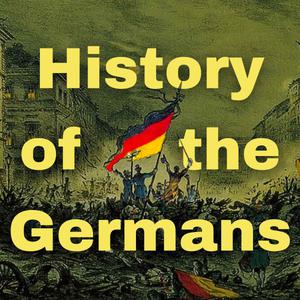
History of the Germans
Dirk Hoffmann-Becking
From the Coronation of Henry the Fowler in 919 CE to German Reunification in 1990 in weekly chronological 20-30 min episodes
- 37 minutes 15 secondsEp. 178 - No Hill to Die On, from Tabor to Vitkov
“It is we, the followers of master Jan Hus, who are obeying the law of God, we who are the true followers of Christ. Thus therefore, who oppose us, oppress us, kill us, are themselves heretics, trying to thwart the will of God. Out of this deep, passionate conviction was born the determination not to yield, not to surrender, but to challenge if need be, all the forces of the religious and political order which had dominated medieval europe for nearly a thousand years, to fight it out against odds the like of which have seldom been seen in history”
So it is written in the “Very Pretty Chronicle of the life of John Zizka” which tells the not so very pretty story of the war against the Hussites that is now heating up. Sigismund musters his crusading army in Silesia whilst the radical Hussites take to the hills and then take a hill.
The music for the show is Flute Sonata in E-flat major, H.545 by Carl Phillip Emmanuel Bach (or some claim it as BWV 1031 Johann Sebastian Bach) performed and arranged by Michel Rondeau under Common Creative Licence 3.0.
As always:
Homepage with maps, photos, transcripts and blog: www.historyofthegermans.com
If you wish to support the show go to: Support • History of the Germans Podcast
Facebook: @HOTGPod
Threads: @history_of_the_germans_podcast
Bluesky: @hotgpod.bsky.social
Instagram: history_of_the_germans
Twitter: @germanshistory
To make it easier for you to share the podcast, I have created separate playlists for some of the seasons that are set up as individual podcasts. they have the exact same episodes as in the History of the Germans, but they may be a helpful device for those who want to concentrate on only one season.
So far I have:
Salian Emperors and Investiture Controversy
Fredrick Barbarossa and Early Hohenstaufen
The Holy Roman Empire 1250-1356
23 January 2025, 5:00 am - 33 minutes 35 secondsEp. 177 – The Day after the End of Days (Jan Zizka in Pilsen)
“To our great shame and sorrow, we must acknowledge how our brethren have been cleverly seduced by Satan, and how they have departed from Holy Scriptures in strange and unheard-of ideas and acts. When Satan first came to them it was not with an open face, as the devil, but in the shining garb of voluntary poverty, [..], and in the zealous work of preaching to and serving the people and in giving them the Body and Holy Blood of God. And [..] a great many people flocked to them.
Then the devil came to them clothed in other garb, in the prophets and the Old Testament, and from these they sought to confect the imminent Day of Judgement, saying that they were angels who had to eliminate the scandals of Christ’s kingdom, and that they were to judge the world. And so they committed many killings and impoverished many people; but they did not judge the world according to their words, for the predicted time has elapsed with which they terrified the people, telling them strange things.” End quote.
Strange things indeed were happening in Bohemia. Peter Chelcicky whose words you just heard reported how the radical Hussites had called the End of Days for February 14th, 1420. But when that day came, and instead of all the enemies of the faith lying dead with their noses pointing skywards, royalist forces surrounded the radical Hussites in the city of Pilzen. Now the end really seemed nigh, but cometh the time, cometh the man, even if the man is a one-eyed, gruff ex-Highwayman.
The music for the show is Flute Sonata in E-flat major, H.545 by Carl Phillip Emmanuel Bach (or some claim it as BWV 1031 Johann Sebastian Bach) performed and arranged by Michel Rondeau under Common Creative Licence 3.0.
As always:
Homepage with maps, photos, transcripts and blog: www.historyofthegermans.com
If you wish to support the show go to: Support • History of the Germans Podcast
Facebook: @HOTGPod
Threads: @history_of_the_germans_podcast
Bluesky: @hotgpod.bsky.social
Instagram: history_of_the_germans
Twitter: @germanshistory
To make it easier for you to share the podcast, I have created separate playlists for some of the seasons that are set up as individual podcasts. they have the exact same episodes as in the History of the Germans, but they may be a helpful device for those who want to concentrate on only one season.
So far I have:
Salian Emperors and Investiture Controversy
Fredrick Barbarossa and Early Hohenstaufen
The Holy Roman Empire 1250-1356
16 January 2025, 5:00 am - 35 minutes 42 secondsEp. 176 – A Great Idiot of History?
Revolutions are exceedingly rare in world history. And they are so rare because they require a whole host of things going wrong and going wrong all at the same time. In 1419/1420 a whole host of things are going wrong in the kingdom of Bohemia.
We did already hear about the defenestration, the first in Czech history. As dramatic an event that was, there was no reason to believe that death and destruction was inevitable at that point. After all there had been dozens, if not hundreds of bloody revolts that did not end up with a revolution.
Amongst Mike Duncan’s very many achievements, the concept of the great idiot theory of history is my absolute favorite. A great idiot of history is someone who out of incompetence, stubbornness, narcissism or other impediments created a situation where historical time accelerates and change occurs. It is the counterpart to the great man theory of history that is presumably a bit better known.
Which gets us to what we will discuss in this episode. Looking at my gradually swelling library of books about the Hussite revolt, it appears as if Sigismund, the king of the Romans and heir to the Bohemian crown was one of these great idiots of history. Many an author, not only Czechs, has blamed him for turning a simple revolt into a revolution out of bigotry, incompetence or even malice. But is that fair? That is what we will investigate in this episode, along a spot of street fighting on Europe’s top 3 backpacker destination.
The music for the show is Flute Sonata in E-flat major, H.545 by Carl Phillip Emmanuel Bach (or some claim it as BWV 1031 Johann Sebastian Bach) performed and arranged by Michel Rondeau under Common Creative Licence 3.0.
As always:
Homepage with maps, photos, transcripts and blog: www.historyofthegermans.com
If you wish to support the show go to: Support • History of the Germans Podcast
Facebook: @HOTGPod
Threads: @history_of_the_germans_podcast
Bluesky: @hotgpod.bsky.social
Instagram: history_of_the_germans
Twitter: @germanshistory
To make it easier for you to share the podcast, I have created separate playlists for some of the seasons that are set up as individual podcasts. they have the exact same episodes as in the History of the Germans, but they may be a helpful device for those who want to concentrate on only one season.
So far I have:
Salian Emperors and Investiture Controversy
Fredrick Barbarossa and Early Hohenstaufen
The Holy Roman Empire 1250-1356
9 January 2025, 5:00 am - 36 minutes 27 secondsEp. 175 – Death and Defenestration; the Hussite Revolt
The Bohemians had already protested against the treatment of Jan Hus when he was arrested and anger was brewing throughout his trial. Hus hadn’t come to Constance on his own. Several noblemen, including the brave knight John of Chlum had come along to support him. One these man, Petr Mladenovics returned to Prague shortly after the trial and recounted the proceedings in every little detail, complete with copies of letters and other documents.
And from that the Bohemians concluded that there had been foul play. Lawrence of Brezowa summarized the view in Prague as follows: quote “Then on Saturday,[..], 6 July, Master Jan Hus, the scholarly bachelor of Holy Scripture, a man of shining virtue in life and morality and a faithful preacher of the gospel was sentenced to death and unjustly vilified by the Council of Constance. This was based upon the false testimony of the witnesses and the relentless instigations of master Štěpán z Pálče, doctor of Holy Scriptures and Michael de Causis, parish priest of St. Voijtech,[..] representing the Czech clergy and the influence of king Sigismund. This was done despite the fact that he was not given a proper hearing in which to prove his innocence”
Bohemian Protest on Display | Rare Books & Manuscripts
The music for the show is Flute Sonata in E-flat major, H.545 by Carl Phillip Emmanuel Bach (or some claim it as BWV 1031 Johann Sebastian Bach) performed and arranged by Michel Rondeau under Common Creative Licence 3.0.
As always:
Homepage with maps, photos, transcripts and blog: www.historyofthegermans.com
If you wish to support the show go to: Support • History of the Germans Podcast
Facebook: @HOTGPod
Threads: @history_of_the_germans_podcast
Bluesky: @hotgpod.bsky.social
Instagram: history_of_the_germans
Twitter: @germanshistory
To make it easier for you to share the podcast, I have created separate playlists for some of the seasons that are set up as individual podcasts. they have the exact same episodes as in the History of the Germans, but they may be a helpful device for those who want to concentrate on only one season.
So far I have:
Salian Emperors and Investiture Controversy
Fredrick Barbarossa and Early Hohenstaufen
The Holy Roman Empire 1250-1356
1 January 2025, 5:00 am - 56 minutes 35 secondsJohn Wycliffe - a Guest Episode from the History of England
Today the History of the Germans is honoured to host David Crowther, doyen of the guild of podcasters and host of the most excellent History of England Podcast.
Wycliffe's writings were to prove controversial and proved an interesting early echo of the Reformation. They heavily influenced the view of Jan Hus and the movement in Bohemia. And his ability to develop and present those views owed a lot to Oxford University, and its desire to protect intellectual debate and investigation.
Enjoy
19 December 2024, 5:00 am - 48 minutes 2 secondsEp. 174 - The Trial of Jan Hus - Council of Constance Part 4
“They will roast a goose now, but after one hundred years they will hear a swan sing, and him they will have to endure.” These were allegedly the last words of a certain Jan Hus whose surname meant goose and who was burned at the stake on July 6, 1415.
Almost exactly one hundred years later a spiritually tormented monk, frightened by a vengeful God who sought to damn him, was assigned to teach the book of Romans at the new university of Wittenberg. And 2 years later this monk by the name of Martin Luther did (or probably did not) nail his 95 theses on the door of the Castle Church of that same town.
As far as prophecies go, this must be one of the most accurate, assuming it was indeed true. But it wasn’t just the foretelling of the next reformer that makes the trial of Jan Hus such a fascinating account. So much is foreshadowed in this tale, it is almost uncanny. The railing against indulgences, the wealth of the clergy, the pope, a promise of safe conduct, a trial, villains and archvillains, accusations upon accusations, defiance in the face of certain death and then the big difference to the diet of Worms, actual death. Have a listen, it is fun.
The music for the show is Flute Sonata in E-flat major, H.545 by Carl Phillip Emmanuel Bach (or some claim it as BWV 1031 Johann Sebastian Bach) performed and arranged by Michel Rondeau under Common Creative Licence 3.0.
As always:
Homepage with maps, photos, transcripts and blog: www.historyofthegermans.com
If you wish to support the show go to: Support • History of the Germans Podcast
Facebook: @HOTGPod
Threads: @history_of_the_germans_podcast
Bluesky: @hotgpod.bsky.social
Instagram: history_of_the_germans
Twitter: @germanshistory
To make it easier for you to share the podcast, I have created separate playlists for some of the seasons that are set up as individual podcasts. they have the exact same episodes as in the History of the Germans, but they may be a helpful device for those who want to concentrate on only one season.
So far I have:
Salian Emperors and Investiture Controversy
Fredrick Barbarossa and Early Hohenstaufen
The Holy Roman Empire 1250-1356
12 December 2024, 5:00 am - 32 minutes 41 secondsEp. 173 - The End of the Schism - Council of Constance Part 3
We have talked about church reform for almost four years, the council of Constance talked about church reform for about the same amount of time and Luther will talk and write about church reform until he did no longer believe that the church could be reformed.
But what is church reform. Or more specifically, what did the delegates in Constance mean when they debated church reform, why did they fail to implement much even though they held off electing a pope and the voting system was set up to favour of the national churches and against central papal authority.
All this we will discuss in this episode plus we will hear some angelic voices that made even the most hardnosed church politician kneel in prayer.
Chapters:
- 00:16 - The Dawn of the Reformation
- 07:28 - Reforming the Church: Key Areas of Discussion
- 11:25 - The Council of Constance: A Turning Point in Church Authority
- 19:03 - The Election of a New Pope
- 29:59 - The Rise and Fall of the Council of Basel
Choir music by Schola Sancte Scholasticae and St. Cecilia's Abbey, UK: Veni Creator Spiritus | Gregorian Chant Hymns
The music for the show is Flute Sonata in E-flat major, H.545 by Carl Phillip Emmanuel Bach (or some claim it as BWV 1031 Johann Sebastian Bach) performed and arranged by Michel Rondeau under Common Creative Licence 3.0.
As always:
Homepage with maps, photos, transcripts and blog: www.historyofthegermans.com
If you wish to support the show go to: Support • History of the Germans Podcast
Facebook: @HOTGPod
Threads: @history_of_the_germans_podcast
Bluesky: @hotgpod.bsky.social
Instagram: history_of_the_germans
Twitter: @germanshistory
To make it easier for you to share the podcast, I have created separate playlists for some of the seasons that are set up as individual podcasts. they have the exact same episodes as in the History of the Germans, but they may be a helpful device for those who want to concentrate on only one season.
So far I have:
Salian Emperors and Investiture Controversy
Fredrick Barbarossa and Early Hohenstaufen
The Holy Roman Empire 1250-1356
5 December 2024, 5:00 am - 36 minutes 46 secondsEp. 172 – A World Event - Council of Constance Part 2
In November 1414 30,000 academics and aristocrats, bishops, blacksmiths and bakers, cardinals, counts and chefs, doctors, dancers and diplomats, princes, prelates and public girls descended on a town in Southern Germany built to house 6 to 8,000 people. They planned to stay a few weeks, 2-3 months max. But 3 and a half years later most of them were still there.
What did they get up to? The great tentpole events, the trial of John XXIII, the burning of Jan Hus and the election of Martin V is what the council of Constance is remembered for, but what about all that time in between?
This world event was so much more than a papal election and the trial of a heretic. For 3 years Constance became a never-ending G20 summit, the greatest academic conference of the Middle Ages, a permanent imperial diet and the centre of the catholic church. Everybody who was anybody was there either in the flesh or had at least sent a delegation.
Issues and concerns were brought before the council that still plague people today. Is it ever right to kill a tyrant, and if so, when can it be justified? What rights should be guaranteed for indigenous groups, in this case Pagans, and how should their dignity be protected? Other attendees sought justice for crimes committed against them or their families in a world where political murder had become commonplace. Others still demanded their reward for years of service, making the house of Hohenzollern the margraves of Brandenburg.
Living cheek by jowl in tiny Constance the leading minds from across Europe, from the ancient universities of Paris, Oxford and Bologna as well as from the newly founded seats of learning in Krakow, Prague, Heidelberg and Vienna shared their ideas, opinions, books and discoveries, paving the way for the intellectual shift we call the Renaissance.
Enough, me thinks to provide 30 minutes of great historical entertainment….
Chapters:
- 00:13 - The Council of Constance: A Gathering Like No Other
- 03:31 - The Council of Constance: A Gathering of Minds
- 08:16 - The Gathering of Intellectuals at Constance
- 12:57 - The Role of Book Hunters in the Renaissance
- 24:23 - Political Violence in the 14th and 15th Century
- 29:56 - The Debate on Tyrannicide at the Council of Constance
- 35:21 - The Council of Constance and Its Impact
The music for the show is Flute Sonata in E-flat major, H.545 by Carl Phillip Emmanuel Bach (or some claim it as BWV 1031 Johann Sebastian Bach) performed and arranged by Michel Rondeau under Common Creative Licence 3.0.
As always:
Homepage with maps, photos, transcripts and blog: www.historyofthegermans.com
If you wish to support the show go to: Support • History of the Germans Podcast
Facebook: @HOTGPod
Threads: @history_of_the_germans_podcast
Bluesky: @hotgpod.bsky.social
Instagram: history_of_the_germans
Twitter: @germanshistory
To make it easier for you to share the podcast, I have created separate playlists for some of the seasons that are set up as individual podcasts. they have the exact same episodes as in the History of the Germans, but they may be a helpful device for those who want to concentrate on only one season.
So far I have:
Salian Emperors and Investiture Controversy
Fredrick Barbarossa and Early Hohenstaufen
The Holy Roman Empire 1250-1356
28 November 2024, 5:00 am - 35 minutes 53 secondsEp. 171 - Cleaning House – The Council of Constance Part 1
The Council of Constance marked a pivotal moment in the history of the Catholic Church and the history of Europe in general.
One issue on the agenda was the ongoing schism that the council of Pisa had failed to resolve. Another the reform of the increasingly corrupt clergy all the way up to the pope himself. And then there were a number of individual questions this gathering of thousands had to address.
Whilst all these were crucial questions, the way the council constituted itself foreshadowed a fundamental change in the way European saw themselves.
This part 1 deals with the establishment of the council and the removal of the popes, most importantly the pope who had convened the council on the first place, John XXIII and his counterpart, the emperor Sigismund.
Chapters:
- 00:18 - The Unusual Procession
- 03:54 - The Journey to Constance
- 10:35 - The Council of Constance: A New Chapter in Church History
- 16:51 - The Arrival of Sigismund
- 20:15 - The Shift Towards National Identity in the Church Council
- 27:41 - The Turning Point: The Council's Decree
- 34:47 - The End of the Schism and the Rise of New Leadership
The music for the show is Flute Sonata in E-flat major, H.545 by Carl Phillip Emmanuel Bach (or some claim it as BWV 1031 Johann Sebastian Bach) performed and arranged by Michel Rondeau under Common Creative Licence 3.0.
As always:
Homepage with maps, photos, transcripts and blog: www.historyofthegermans.com
If you wish to support the show go to: Support • History of the Germans Podcast
Facebook: @HOTGPod
Threads: @history_of_the_germans_podcast
Bluesky: @hotgpod.bsky.social
Instagram: history_of_the_germans
Twitter: @germanshistory
To make it easier for you to share the podcast, I have created separate playlists for some of the seasons that are set up as individual podcasts. they have the exact same episodes as in the History of the Germans, but they may be a helpful device for those who want to concentrate on only one season.
So far I have:
Salian Emperors and Investiture Controversy
Fredrick Barbarossa and Early Hohenstaufen
The Holy Roman Empire 1250-1356
21 November 2024, 5:00 am - 36 minutes 37 secondsEp. 170 – Jan Hus, Reformer and Rebel?
“Master Jan Hus, preacher of the Holy Scriptures from the chapel of Bethlehem, was also present at this council, who in his preaching continuously criticized and exposed the hypocrisy, pride, miserliness, fornication, simony, and other sins of the clergy, in order to bring the priesthood back to the apostolic life. He was immensely hated by these pestiferous clerics.”
This is how Laurence of Brezova introduced the great reformer and Czech national hero Jan Hus in his 15th century chronicle of the Hussite uprising.
Why should we care about the trials and tribulations of another holy man railing against corrupt prelates and the subsequent “quarrel in a faraway country, between people of whom we know nothing”.
Well, that quote itself should be reason enough. It is from Neville Chamberlain speech of September 27, 1938 weighing the importance of protecting Czechoslovakia against an expansionist Nazi Germany.
But Jan Hus is interesting beyond his status as a towering figure in Czech history. When he came to Prague in 1390 he was just another ambitious young man from a modest background who wanted to rise up in the world on the back of intelligence and hard work. But by the time he leaves for his fate at the Council of Constance in 1414 he has been excommunicated, exiled and unwillingly or willingly be come he face of a brewing revolt against king and clergy. This is a story about collapsing certainties and emerging truths, about individual beliefs and institutional order. About what the community of the faithful is supposed to be and who is in and who is out. And its tentacles reach deep into the next centuries…
The music for the show is Flute Sonata in E-flat major, H.545 by Carl Phillip Emmanuel Bach (or some claim it as BWV 1031 Johann Sebastian Bach) performed and arranged by Michel Rondeau under Common Creative Licence 3.0.
As always:
Homepage with maps, photos, transcripts and blog: www.historyofthegermans.com
If you wish to support the show go to: Support • History of the Germans Podcast
Facebook: @HOTGPod
Threads: @history_of_the_germans_podcast
Bluesky: @hotgpod.bsky.social
Instagram: history_of_the_germans
Twitter: @germanshistory
To make it easier for you to share the podcast, I have created separate playlists for some of the seasons that are set up as individual podcasts. they have the exact same episodes as in the History of the Germans, but they may be a helpful device for those who want to concentrate on only one season.
So far I have:
Salian Emperors and Investiture Controversy
Fredrick Barbarossa and Early Hohenstaufen
The Holy Roman Empire 1250-1356
14 November 2024, 5:00 am - 45 minutes 43 secondsEp. 169 – Sigismund, the (not yet) Emperor
The late 14th and early 15th century was a period of upheaval, the certainties of the Middle Ages, that the pope ruled the world and that knights were invincible were crumbling away, the long period of economic growth, of eastward expansion and conversion of the pagans made way for war, plague and famine. The church was split in half and the Ottomans were coming.
This was an age that called forth larger-than-life characters: Joan of Arc, fierce and holy; Henry Bolingbroke, seizing a throne; Jadwiga and Jogaila, uniting kingdoms; the audacious Gian Galeazzo Visconti and fiery Cola di Rienzo; the ever-scheming John the Fearless and Jacob van Artevelde; the tragic Ines de Castro and the unflinching Jan Žižka.
Into this glittering and turbulent lineup steps a man whose reputation has not exactly been polished by time. Despised in his kingdoms of Hungary and Bohemia and even Constance, the city that owes him so much, decided to remember him as a fat naked crowned guy with skinny arms and legs, worn-out face, forked beard and disproportionate genitalia balancing on the hand of a nine-meter-tall sex worker. No, I am not making this up.
Sigismund, because that was his name, was a true enigma of the late Middle Ages. He had inherited his father’s charm and ruthless cunning, his knack for negotiating compromise in impossible situations, and his unshakeable belief in his role as the head of Christendom. But what he hadn’t inherited was his father’s performative piety, his zeal for relics, his asceticism—or his wealth.
Instead, Sigismund was left with a volatile mix of ambition, enormous self-confidence, a lust for life, and, crucially, a chronic shortage of funds. Yet despite his flaws, he took on Christendom’s two greatest crises—the schism and the Ottoman threat—and in doing so, managed to create a third…This is his backstory.
The music for the show is Flute Sonata in E-flat major, H.545 by Carl Phillip Emmanuel Bach (or some claim it as BWV 1031 Johann Sebastian Bach) performed and arranged by Michel Rondeau under Common Creative Licence 3.0.
As always:
Homepage with maps, photos, transcripts and blog: www.historyofthegermans.com
If you wish to support the show go to: Support • History of the Germans Podcast
Facebook: @HOTGPod
Threads: @history_of_the_germans_podcast
Bluesky: @hotgpod.bsky.social
Instagram: history_of_the_germans
Twitter: @germanshistory
To make it easier for you to share the podcast, I have created separate playlists for some of the seasons that are set up as individual podcasts. they have the exact same episodes as in the History of the Germans, but they may be a helpful device for those who want to concentrate on only one season.
So far I have:
Salian Emperors and Investiture Controversy
Fredrick Barbarossa and Early Hohenstaufen
The Holy Roman Empire 1250-1356
7 November 2024, 5:00 am - More Episodes? Get the App
Your feedback is valuable to us. Should you encounter any bugs, glitches, lack of functionality or other problems, please email us on [email protected] or join Moon.FM Telegram Group where you can talk directly to the dev team who are happy to answer any queries.
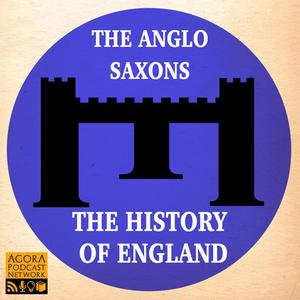 Anglo Saxon England Podcast
Anglo Saxon England Podcast
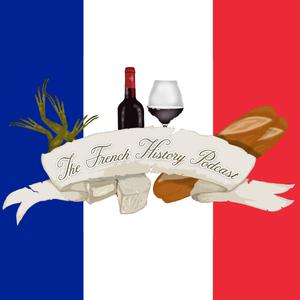 The French History Podcast
The French History Podcast
 Reconquista
Reconquista
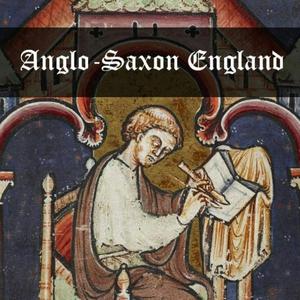 Anglo-Saxon England
Anglo-Saxon England
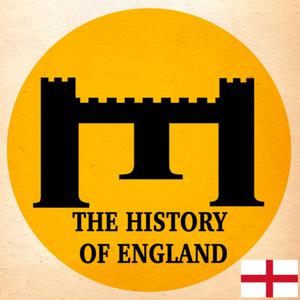 The History of England
The History of England
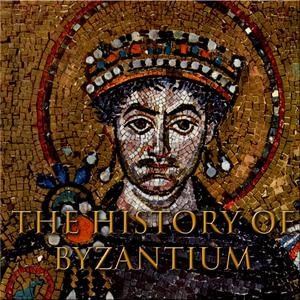 The History of Byzantium
The History of Byzantium